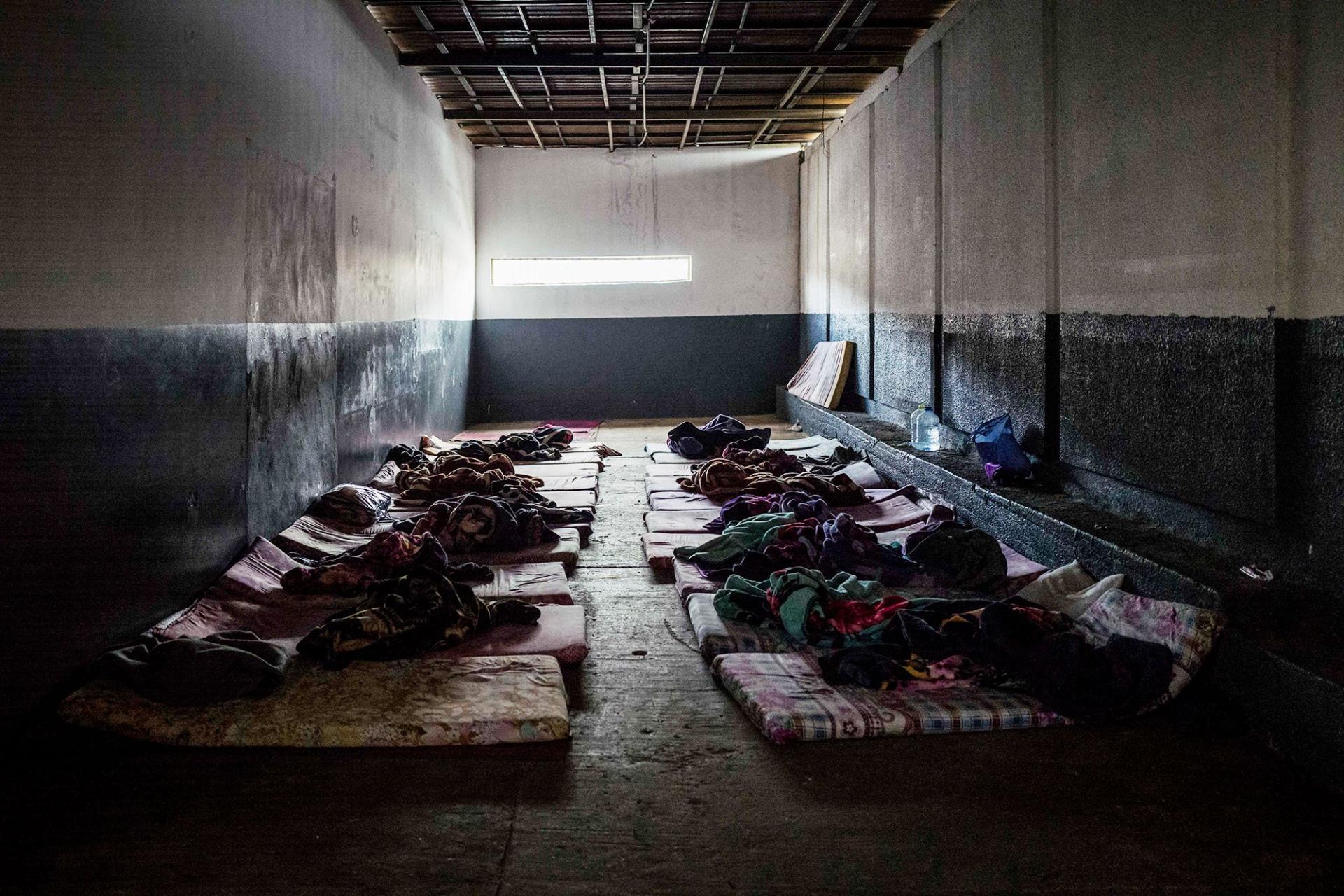Doctors Without Borders (MSF) is calling for an end to the arbitrary detention of refugees, asylum-seekers and migrants in Libya.
For more than a year, the international humanitarian organisation has been providing medical care to people held in Tripoli detention centres in conditions that are neither humane nor dignified.
“Detainees are stripped of any human dignity, suffer ill treatment and lack access to medical care,” says Dr Sibylle Sang, a medical advisor for MSF.
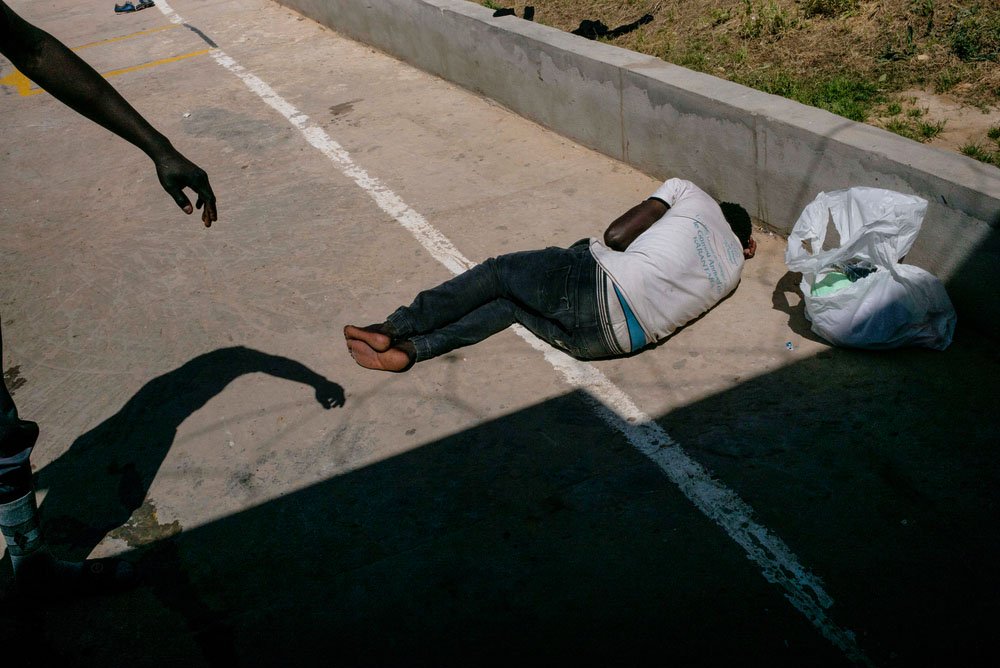
“Every day we see how much unnecessary harm is being caused by detaining people in these conditions but there is only so much we can do to ease the suffering.”
Medical teams treat more than a thousand detainees every month for respiratory tract infections, acute watery diarrhoea, infestations of scabies and lice, and urinary tract infections.
These diseases are directly caused or aggravated by detention conditions. Many detention centres are dangerously overcrowded with the amount of space per detainee so limited that people are unable to stretch out at night and there is little natural light or ventilation.
Food shortages have led to adults suffering from acute malnutrition, with some patients needing urgent hospitalisation.
With no rule of law in Libya, the detention system is harmful and exploitative. There is a disturbing lack of oversight and regulation. Basic legal and procedural safeguards to prevent torture and ill-treatment are not respected.
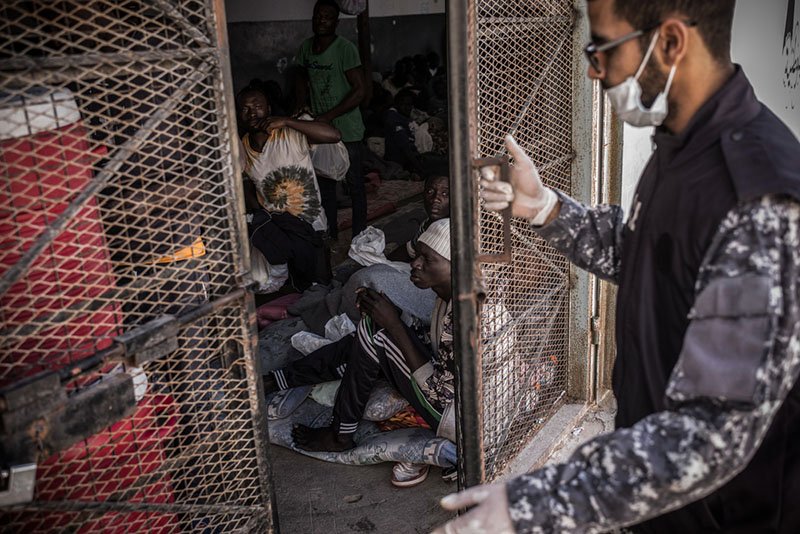
With no formal registration or proper record-keeping in place, once people are inside a detention centre there is no way to track what happens to them. This makes close monitoring and follow-up of patients extremely difficult.
From one day to the next, people can be transferred between different detention centres or moved to undisclosed locations. Some patients simply disappear without a trace. The medical care MSF is able to provide in these circumstances is extremely limited.
Access to the detention centres is restricted when clashes take place between heavily armed militias in Tripoli. In addition, the management of the detention centres can change overnight and access to patients held inside has to be renegotiated.
There are other detention centres that remain inaccessible for MSF due to ongoing violence and insecurity.
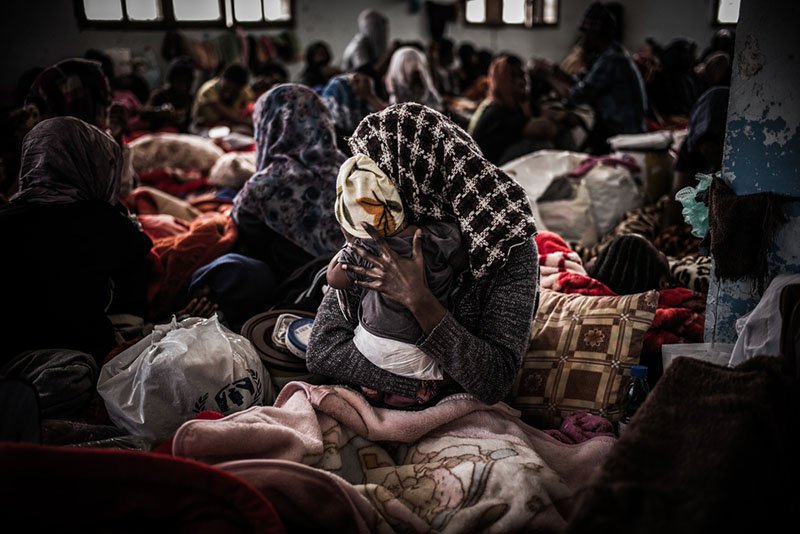
Increased funding alone is not the solution to alleviating the suffering of refugees and migrants being held in detention centres.
A narrow focus on improving conditions of detention, while turning a blind eye to the complex reality of the current situation in Libya risks legitimising and perpetuating a system in which people are detained arbitrarily, without recourse to the law, and are exposed to harm and exploitation.
MSF calls for an end to the arbitrary detention of refugees, asylum-seekers and migrants in Libya
-----------
Guillaume Binet a French photojournalist and the co-founder of Myop photo agency shares his experience with the detainees.
“Without the medical care she so desperately needed, I doubt she is still alive”
“I don’t know her name or even if she is still alive. The guards prevented me from talking to her. She was one of a group of women being held in the yard of a detention centre about 60 kilometres west of Tripoli near the coast. While they were attempting to reach Europe, they were intercepted on the Mediterranean by the Libyan Coastguard and brought back to the detention centre.
Many of the women had severe burns on their legs. Sea water had splashed over the sides of the rubber dinghy and reacted with fuel that had been spilled on the floor of the boat where the women had been sitting. The prolonged exposure to this toxic mixture had caused the chemical burns.
The woman with the pink scarf had extensive injuries over her legs. She sat on the ground silently, her breathing shallow and the pain on her face palpable. The other women swatted away the flies landing on the damaged human tissue with their scarves. There had been an attempt to dress the burns with a dirty bandage.
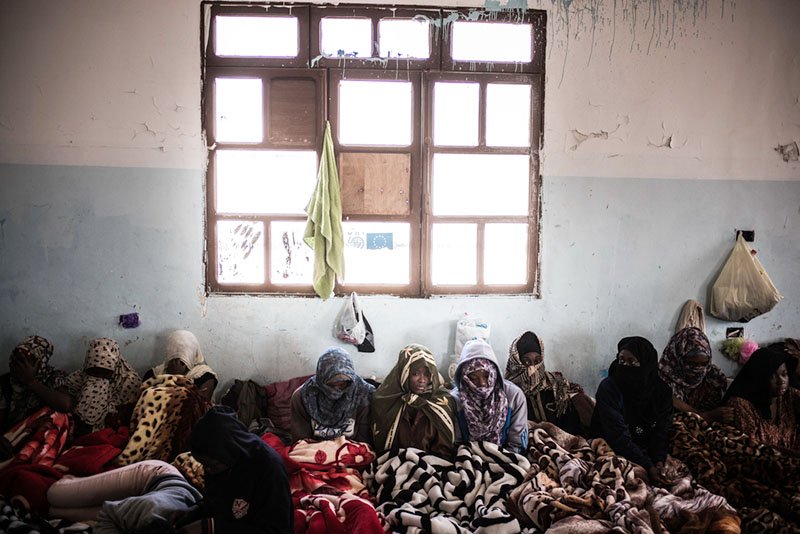
One of the women whispered to me:
“We’re scared. No-one wants to stay here. We want to go back home. They are hurting us. They hit us…”
But she stopped talking when the guards moved in closer.
For some of the women it had been their third attempt to escape Libya by sea only to be intercepted by the Libyan coastguard and returned to a detention centre.I don’t know what happened to the woman with the pink scarf. But without the medical care she so desperately needed, I doubt she is still alive.”
For the past year, MSF has been providing lifesaving and primary healthcare to refugees, asylum-seekers and migrants detained in Tripoli. If security conditions allow and if it is considered safe to do so, medical teams visit seven different detention centres nominally under the control of the Ministry of Interior on a weekly basis.
Since activities started in June 2016, teams have visited a total of 16 detention centres. There are other detention centres that remain inaccessible for MSF teams due to ongoing violence and insecurity.
In Misrata, MSF is providing healthcare to refugees and migrants in held in four detention centres. Each month medical teams provide about 100 medical consultations and makes around a dozen referrals of detainees in need of further medical assistance to secondary and tertiary healthcare facilities.
MSF recently opened mobile clinics in Misrata and further south to provide medical and humanitarian assistance to migrants and refugees outside official detention centres.
MSF has worked in Libya since 2011 to support the health system, which has been impacted by the renewed war and the ensuing economic recession. To help public health structures which struggle with shortages of medicines and staff, MSF continues to respond with donations and other support.
Responding to the needs of communities affected by the conflict, MSF is also providing paediatric, gynecological and obstetric care, as well as mental health services, in Benghazi
Find out more about MSF's work in Libya.
